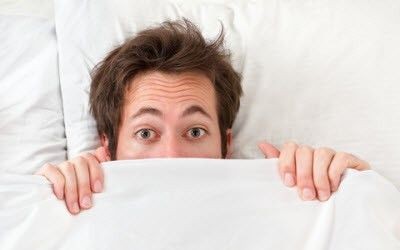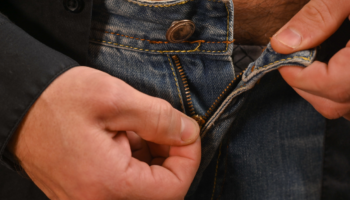You might say that we live in an enlightened age. For the most part, masturbation is celebrated as a stress reliever, safe means of sexual self-expression, and downright fun way to pass the time. But society wasn’t always so accepting. In fact, there have been all kinds of myths and tall tales surrounding masturbation throughout history. We now know that the majority of people masturbate, at least at some point in their lives, and that it's a healthy part of being human. Even so, these off-the-wall myths about masturbation persisted, even though many people must have touched themselves and discovered they just didn't hold up. At least, we hope they did ...
Masturbation as a Health Hazard
History has been filled with all kinds of myths about the negative effects of masturbation on health. As early as the 18th century, it was purported to cause digestion problems, pimples and even blindness. This persistent myth lingered partly as a result of religious opposition to masturbation. Throughout the 1700s, 1800s and early 1900s, many doctors, professionals and a legion of quacks wrote about the dangers of self pleasure, and presented a host of symptoms including muscle and joint pain, swollen legs, shortness of breath, loss of appetite, hairy palms, and of course, loss of vision (often in one eye). Unfortunately, the only real ills caused by masturbation were some of the extreme punishments used against children to prevent it at the time.A Healthy Body Is One Without Sexual Desire
Who would have thought that two famous food makers would contribute to myths about masturbation? But Sylvester Graham and John Harvey Kellogg did just that. Graham believed that eating meat ignited carnal desires and advocated enjoying a vegetarian diet instead. He later created the Graham cracker, an unsweetened, whole grain version of the cracker we know today, which he also thought would dampen desires.John Harvey Kellogg was a like minded soul who also believed in the link between food and libido. When he wasn’t making cereal, he was avoiding sex and warning of its dangers. Even though he was married, the celibate Kellogg believed sexual activity in all forms was an abomination that should be avoided at all costs. He thought masturbation was the greatest sin, and he believed it could cause a host of diseases including leprosy, tuberculosis, epilepsy and heart disease. For the good of society he created his famous cereals, which he was certain would promote health and reduce sexual appetite. (Kellogg had it all wrong. We now know that masturbation has many health benefits. Read about them in Masturbation Each Day Keeps the Doctor Away.)
But while a bland diet may be boring to the palate, there's no evidence it has any influence on sexual appetite. (So go ahead and enjoy your Corn Flakes).
Masturbation Is Maturation
Ancient Romans had the idea that boys who masturbated would mature into men more quickly. As a result, Italian parents encouraged their boys to channel their desires into gymnastics and philosophy to take their minds off what they viewed as dangerous urges.Of course, the link here was mostly correlation; those who were fast approaching puberty (and therefore manhood) were the ones doing the deed.
Clean Body, No Dirty Behavior
It sounds far-fetched, but the idea that regular bathing and good personal hygiene could prevent masturbation was a popular theory near the end of the 19th century. Doctors and religious figures suggested that everyone should bathe daily, as they felt that clean genitals would prevent scratching ... which could easily lead to other things.Our old friend John Harvey Kellogg even weighed in, commenting in his book "Plain Facts for Old and Young" that "a daily bath is indispensable to health under almost all circumstances; for patients of this class [masturbators] it is especially necessary."
The idea of cold water dampening sexual desires also began to gain momentum at this point. A YMCA manual from 1909 declared that a "young man who wishes to overcome the habit just described [masturbation] … [should] arise three-quarters of an hour before breakfast every morning, take a cold sponge or shower bath."
Nowadays, we see personal hygiene not only as a healthy behavior, but as a way to improve your odds of attracting a sexual partner. The number of waterproof sex toys available suggests that all that water (whether hot or cold) doesn't do much to dampen our desires either!


















